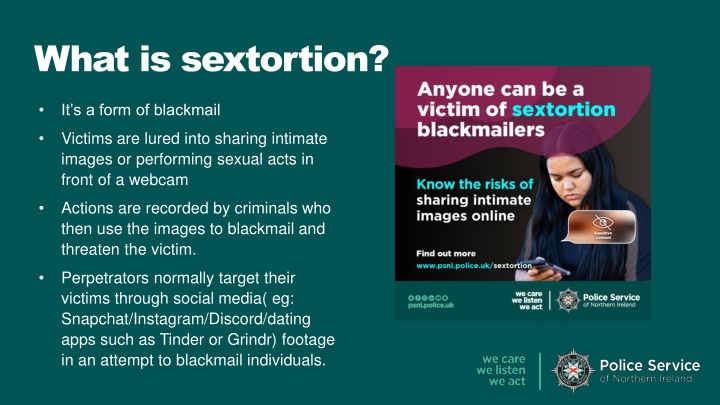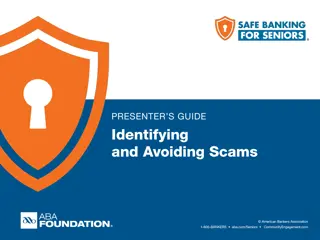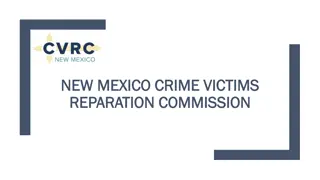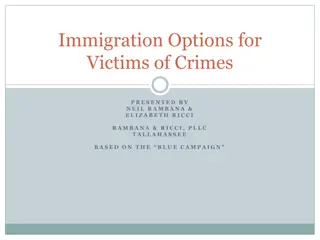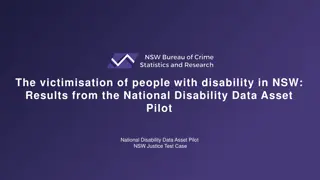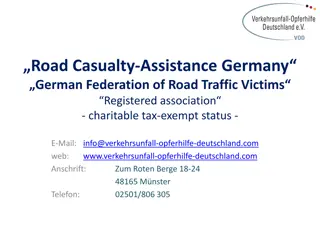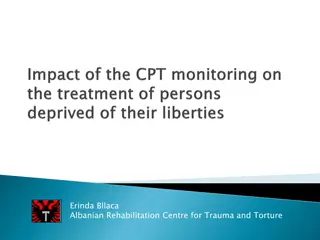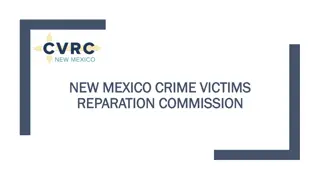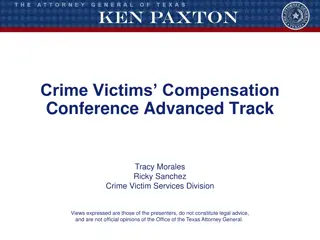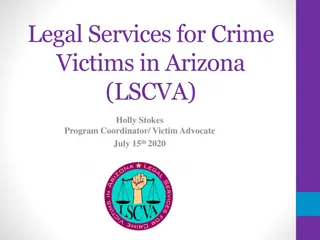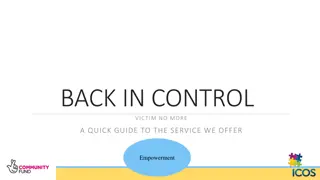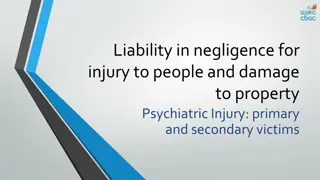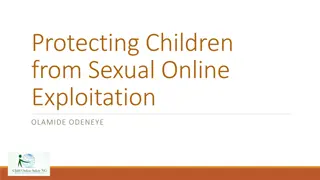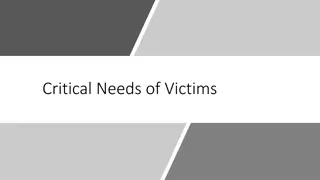Protect Yourself from Sextortion: Tips and Support for Victims
Understand what sextortion is, who is at risk, and how to protect yourself from falling victim to this form of blackmail. Learn about the perpetrators behind the crimes and find support resources for victims of sextortion.
Download Presentation

Please find below an Image/Link to download the presentation.
The content on the website is provided AS IS for your information and personal use only. It may not be sold, licensed, or shared on other websites without obtaining consent from the author.If you encounter any issues during the download, it is possible that the publisher has removed the file from their server.
You are allowed to download the files provided on this website for personal or commercial use, subject to the condition that they are used lawfully. All files are the property of their respective owners.
The content on the website is provided AS IS for your information and personal use only. It may not be sold, licensed, or shared on other websites without obtaining consent from the author.
E N D
Presentation Transcript
What is sextortion? It s a form of blackmail Victims are lured into sharing intimate images or performing sexual acts in front of a webcam Actions are recorded by criminals who then use the images to blackmail and threaten the victim. Perpetrators normally target their victims through social media( eg: Snapchat/Instagram/Discord/dating apps such as Tinder or Grindr) footage in an attempt to blackmail individuals.
Who is at risk? Anyone can be a potential target. In the period from Jan to March 2023, police received an average of 66 reports of sextortion per month The main target victims tend to be males aged 18-23 39.6% of all victims are in this category However 26.7% of all victims were under 18 this number is increasing Victims range in age from 12-83 yrs and are predominantly male- over 93%) Research shows under-reporting
Who is committing these crimes? These requests originate outside Europe. The criminals behind this are very skilled at making the victim believe they are another young person. They exploit the fear and embarrassment of the victim. The key thing for the perpetrator is getting an image in order that they can demand money.
How can you protect yourself? Use the privacy setting on your social networking sites. Be careful who you befriend online and don't get lured into compromising situations(removing clothes or performing intimate acts online). Be very careful about who you invite or accept invitations from online and don t accept friends requests from total strangers. Don t include any personal information in profiles.
Help and advice for victims If you have been a victim of sextortion, then you are certainly not alone. Don t panic, don t pay and don t communicate further with the offender. Block the offender- but be aware they may try other ways to contact you. Don t be afraid to talk to a family member, a teacher or a trusted friend. Contact police immediately on 101
Support Support is available from the following: Report Remove www.childline.org.uk (under 18s can make a report to the Internet Watch Foundation via Childline to have an image or video removed from the Internet) Lifeline - 0800 808 8000 Victim Support NI 020 90243133 or 028-7131 0086/ Supportline UK 0808 168 9111 Get Safe Online www.getsafeonline.org
Child Line to get image of IP <18 removed if shared (request to remove image cannot be made by the young person themselves or by a police officer or teacher- it must come from a parent/guardian) www.childline.org.uk/remove Lifeline 0800 808 8000 Samaritans 116 123 or 0330 094 5717 Victim Support 028 9024 3133 / 028 7137 0086 / Victim Support UK 0808 1689111 Out of hours GP s Contact Local Health Trust or GP surgery for details Belfast Trust 028 9074 4447 / 028 9079 6220 South Eastern Trust 028 9182 2344 / 028 9260 2204 Southern Trust 028 3839 9201 Western Trust 028 7186 5195 Northern Trust 028 2566 3500 NSPCC Helpline 0808 800 5000 or help@nspcc.org.uk CEOP www.ceop.police.uk The Cyber Helpline www.thecyberhelpline.com Prevention of Young Suicide www.papyrus-uk.org Get safe online www.getsafeonline.org Revenge Porn helpline www.revengepornhelpline.org.uk Advice for young people www.thinkuknow.co.uk
How can you protect yourself? Use the privacy setting on your social networking sites. Be careful who you befriend online and don't get lured into compromising situations(removing clothes or performing intimate acts online). Be very careful about who you invite or accept invitations from online and don t accept friends requests from total strangers. Don t include any personal information in profiles.
